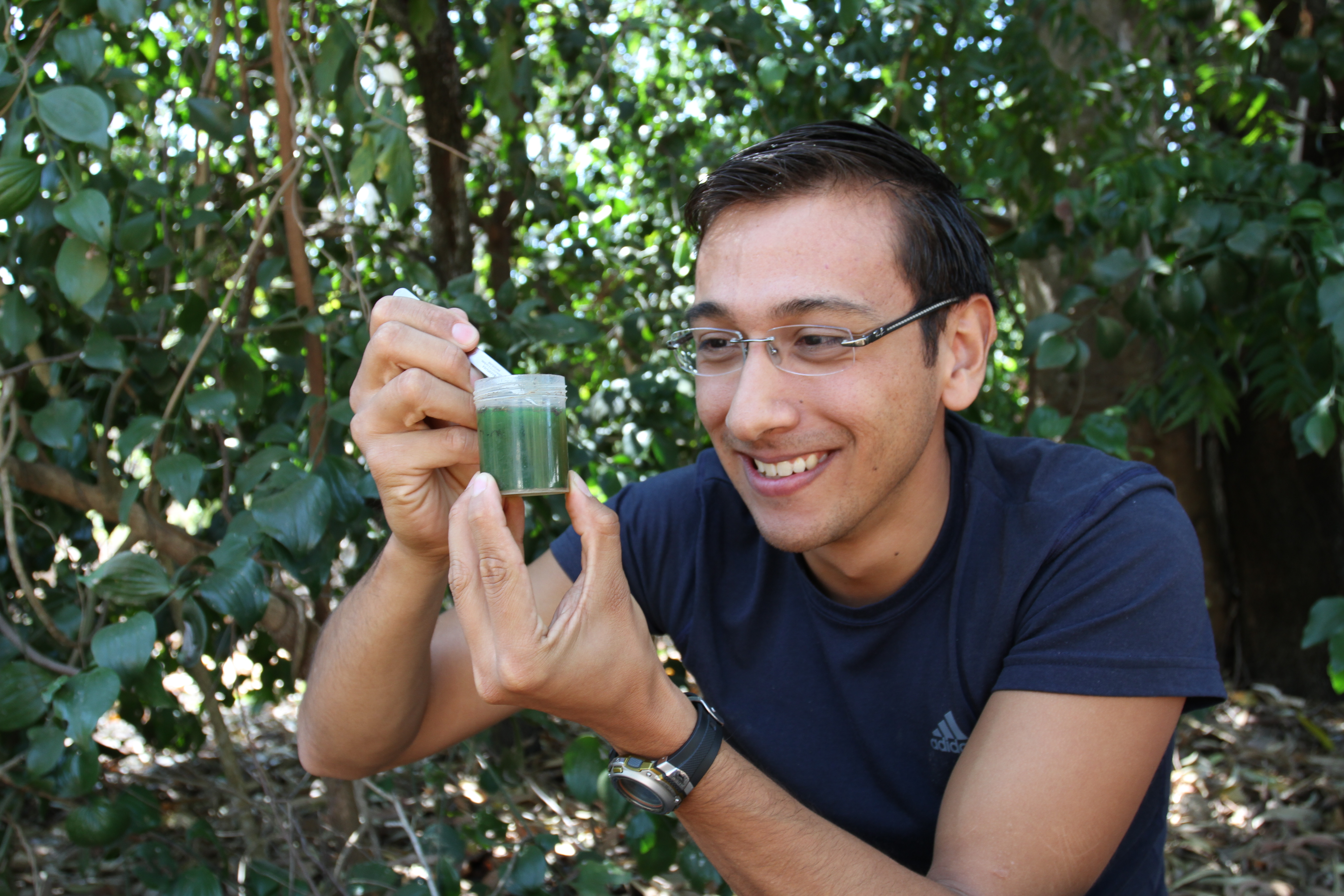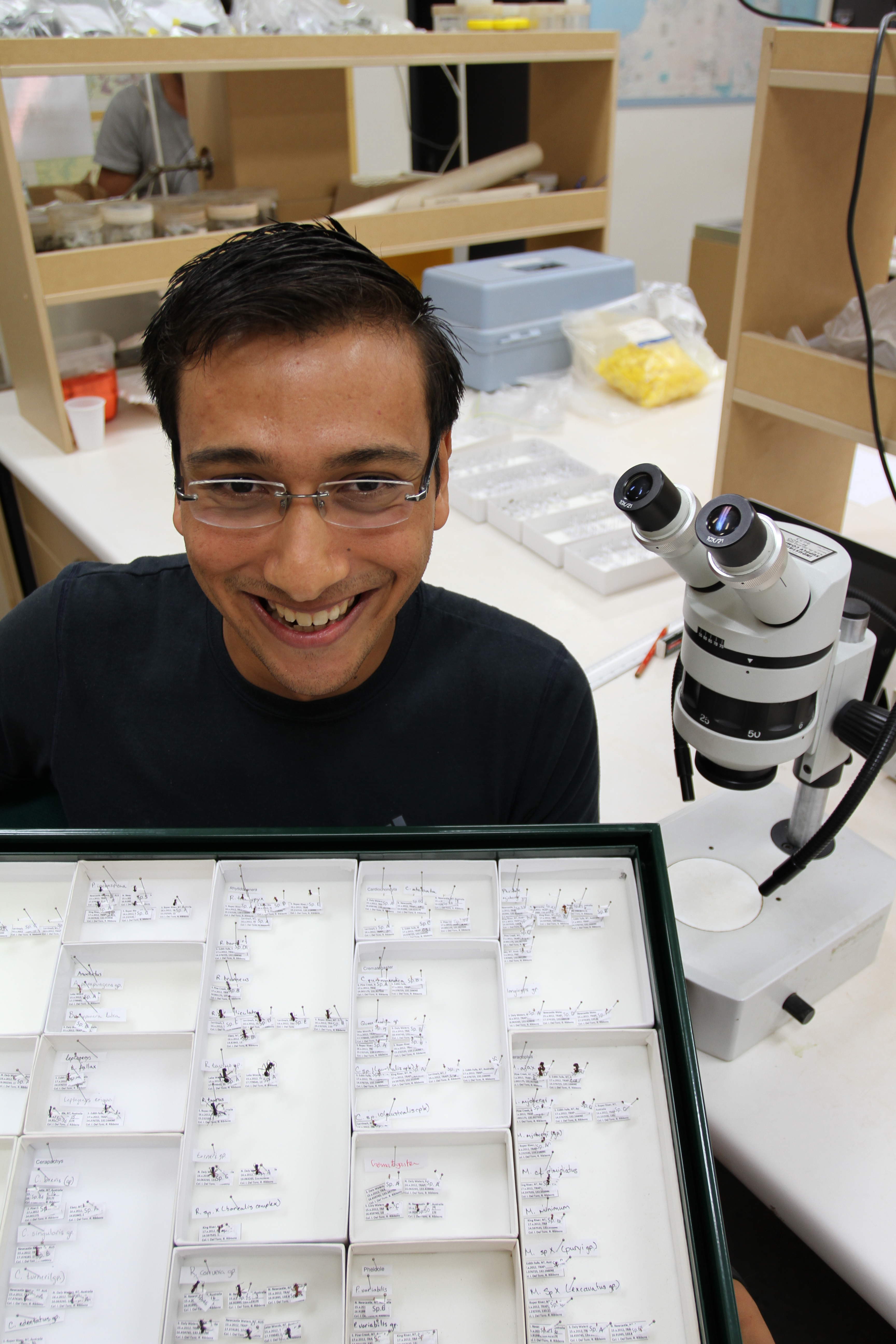
Israel knows there’s a lot more to life than being really, really, ridiculously good looking.
What do ants, Darwin and Texas have in common? Why, it’s Fullbright Scholar Israel Del Toro.
Israel has spent the past year with our Ecosystem Sciences team observing how the little critters in northern Australia are responding to global climate change.
Born and raised in Texas and currently studying at the University of Massachusetts, Israel was given the opportunity to work with us in Darwin because of his expertise in ant ecology.
He created statistical and geographical models to predict how our ant communities might react to regional climate change. This information will help us conserve habitats and species across different ecosystems.

Our very own ‘centre for ants’ holds over 5000 different species.
Sadly, even our little ants aren’t immune to the warming climate. Around 25 per cent of species in Israel’s study showed major declines in their range and could possibly face extinction as their habitats change over the next 65 years.
Our Darwin lab (informally known as the centre for ants) was the perfect location for Israel to carry out his research. Here we hold the world’s most extensive collection of Australian ants with over 5,000 different species – now that’s something to brag about.
“Working with ants is what got me hooked on ecology research. But ant diversity in the US is quite small compared to the wealth of species found in Australia. So for me, coming here to expand on my research interests was a logical next step in my career.”
Israel has just returned to America to finish his PhD. He plans on defending his dissertation early next year and wants to start a postdoc soon afterwards.
“This year has really opened up new doors for me. Doing research and remote fieldwork in the Top End has been amazing. There’s nothing quite like accessing field sites in helicopters in places like Kakadu National Park.”
For more information on careers at CSIRO, follow us on LinkedIn.

